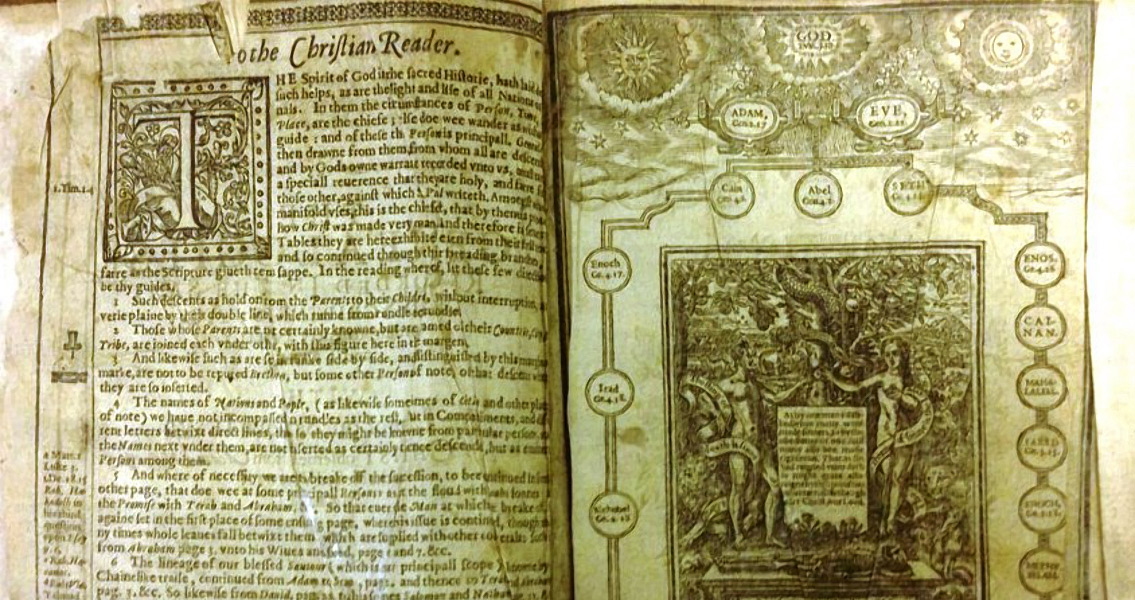<![CDATA[A draft of the King James Bible, the earliest known to date, has been discovered in Cambridge by an American scholar. Jeffrey Miller came across the manuscript, dated to somewhere between 1604 and 1608, in 2014. It predates the 1611 publication of the text commissioned by the eponymous ruler, one of the most widely-read versions of the Old and New Testament in the English language. In an interview with the New York Times, the researcher from New Jersey’s Montclair State University said that the discovery was “leap-out-of-the-bathtub” momentous, though it was followed by a year of laborious fact-checking and analysis to ensure the draft discovered was legitimate. The entire manuscript, which has been described as around 70 pages of handwriting so dense as to be nearly “illegible”, was accompanied with biblical commentaries and notes penned in both Hebrew and Greek. Originally put together by nearly 50 translators organized into teams of “companies” to handle the work spread across Cambridge, Oxford and London, the endeavor was organized by King James I in order to create an official bible version that would eliminate growing Puritan influences and cement the primacy of the Church of England. Highly influential thanks to the poetry of its verse, the King James Bible ranks with the works of Shakespeare for its impact on the English language. Shakespearean and other Early Modern English poetry could have easily been influential on the companies performing the translation process, as Shakespeare was actively penning plays during Jacobean England – with Macbeth being an attempt to praise the merits of King James’ royal Scottish bloodline. However, the process behind the composition of the King James Bible has been shrouded in mystery for some time, thanks to scholars not having complete access to the notes created by these drafting companies. Miller’s new discovery has begun to fill in some of these more egregious gaps, the researcher noted in the Times Literary Supplement. The notebook Miller discovered had once been the property of Samuel Ward, a member of the seven-man Cambridge team that had been tasked with translating passages from older source materials used in the King James Bible. Left languishing in the college without being catalogued and with only the barest of attention paid to it, the manuscript – and the true significance of what it held – leapt into focus suddenly once Miller began to examine it more thoroughly. The English professor states that the Ward document is invaluable in its ability to aid in revealing one of the “most extraordinary cultural achievements” of the early seventeenth century. With the King James Bible easily the most widely read work of all time written in English, any insight into the work and the thought processes that went into its construction is revelatory in its own right. Image courtesy of Wikimedia Commons user: Jeremylinvip.]]>
Oldest Draft of King James Bible Found
